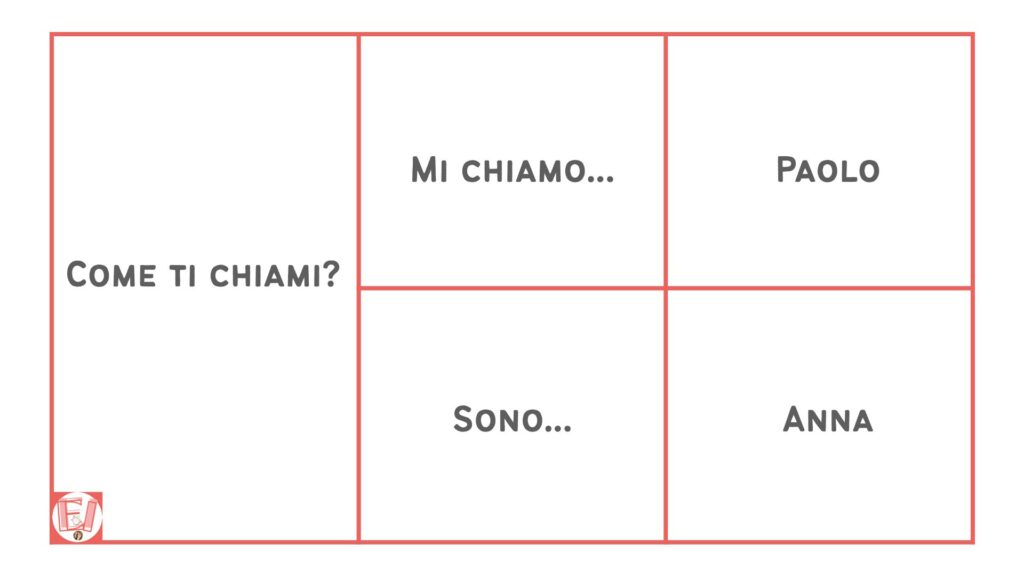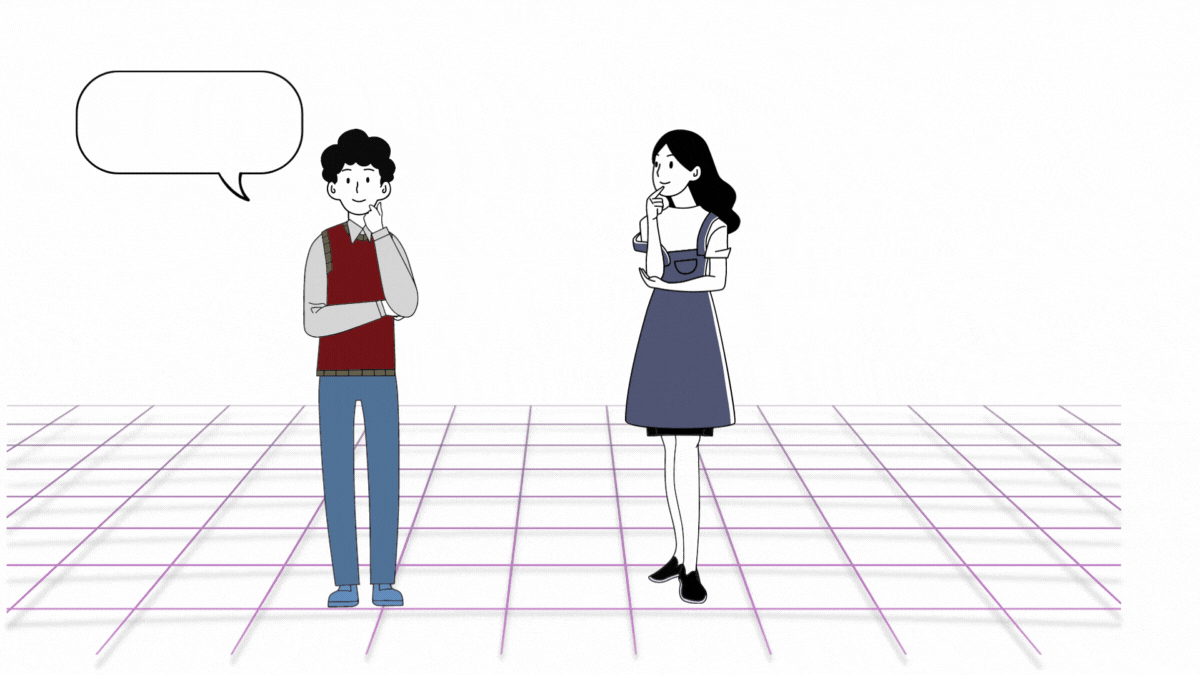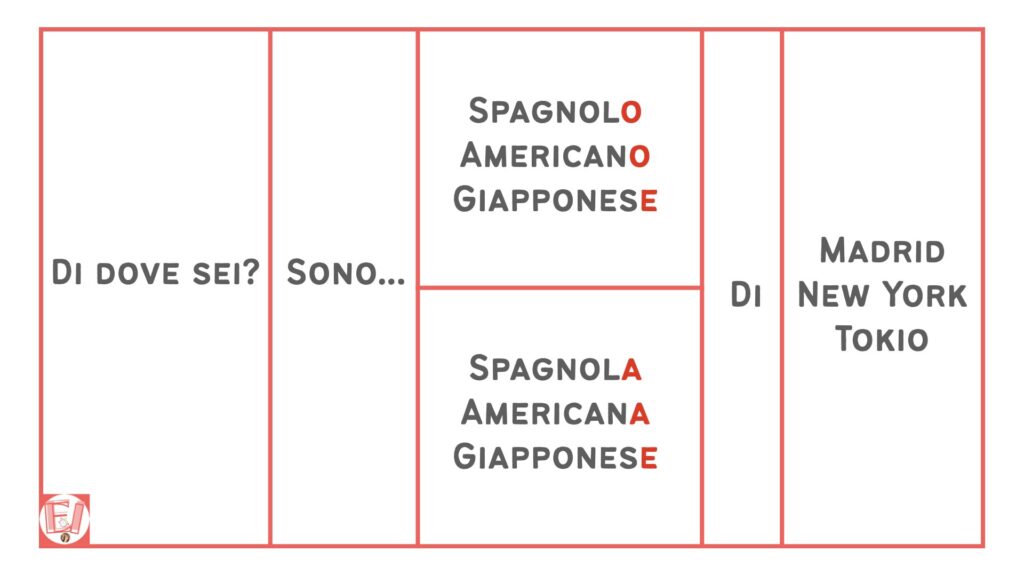Level 1: Beginner
As a beginner, your initial step should be to develop simple, introductory dialogues. Following an initial ciao (hello), a typical first conversation will usually focus on what is your name, where you live and what you do.
On this page, you will learn about:
There are different ways of introducing yourself.
The following example offers a very informal introduction, used only in a very casual situation. We’ll see the formal examples in a different post.
We’d like to introduce you to the verb “chiamarsi” (to call oneself), an important reflexive verb that you use to introduce yourself and ask others for their names.


In fact, like in English, you can introduce yourself simply by saying your name:
(Io) sono Paolo.
You can also just say your name without the “Mi chiamo” (My name is) or “Sono,” .



A little dialogue
Anna: Ciao, io mi chiamo Anna, e tu come ti chiami? (Hi, my name is Anna, and what’s your name?)
Paolo: Ciao, io mi chiamo Paolo. (Hi, my name is Paul.)
Talking about where you come from
In Italian, adjectives of nationality are used to describe the origin or cultural identity of a person, place, or thing. They typically come after the noun they modify and must match its gender and number.
You know how fun it may be to meet people from other countries and nationalities. Two common questions to remember are:
The answers are as follows:
You now can practice with these phrases. You can add names of continents, countries, cities, or places.
Listen to the audio than read the text
Pablo: Ciao, come ti chiami?
Mary: mi chiamo Mary e tu?
Pablo: mi chiamo Pablo e tu di dove sei?
Mary: sono americana di Boston, e tu di dove sei?
Pablo: sono spagnolo di Madrid, e questa è la mia amica Nan, lei è cinese di Pechino.

Di dove sei?
Sono
americano
americana
di Boston
When referring to masculine nouns, use the suffix -o for singular forms, and when referring to feminine nouns, use the suffix -a.
Adjectives with a singular -e ending in the plural -i refer to both males and females.
Click on the Map Icon Location to learn Nationalities (with audio)

Rearrange the words and form sentences

Watch the video about introducing yourself:
How do Italian adjectives work?
What’s next?
You might want to keep learning Italian online with these free resources:



Let’s Connect!
Join and visit our Facebook Group for Italian Learners







Leave a Reply